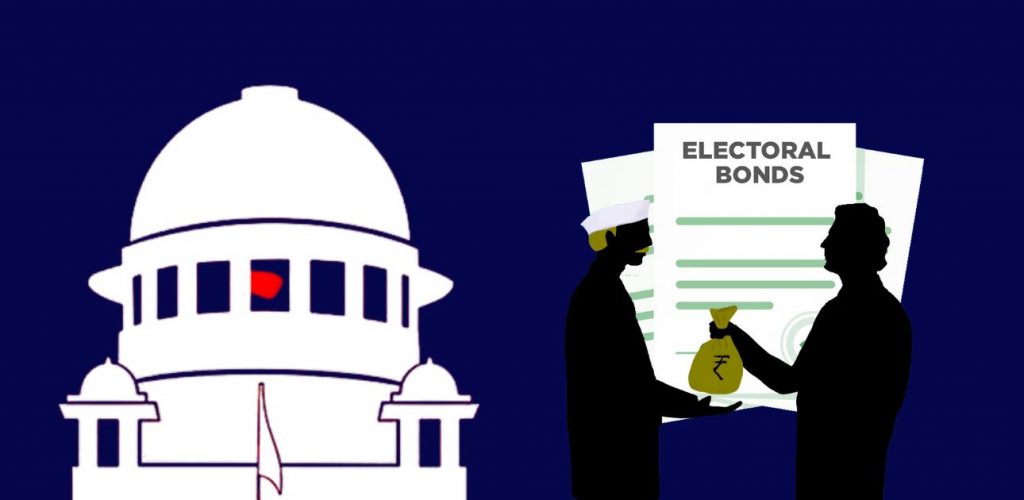Context:
The Supreme Court's recent decision to strike down the electoral bond scheme marks a significant milestone in the realm of Indian electoral financing. Aimed at facilitating anonymous political contributions, the scheme faced intense scrutiny for its potential to undermine transparency and accountability in the democratic process. The unanimous verdict by a five-judge Constitution Bench not only declared the scheme unconstitutional but also highlighted various key aspects pertaining to donor privacy, the right to information, and the overarching principles of free and fair elections.
Violation of the Right to Information:
The court's ruling underscored the violation of the right to information enshrined in Article 19(1)(a) of the Constitution. By allowing anonymous political donations, the scheme impeded the electorate's ability to make informed decisions and held the government accountable. The court emphasized the intrinsic value of the right to information, not merely as a means to an end, but as an essential component of participatory democracy. Furthermore, it noted the deep-seated correlation between economic inequality and political engagement, highlighting the potential for quid pro quo arrangements arising from financial contributions to political parties.
Challenging the Electoral Bond Scheme:
The court rejected the government's argument that the scheme was necessary to curb black money in electoral financing. It applied a proportionality test, emphasizing the government's failure to adopt the least restrictive methods to achieve its objectives. While acknowledging the need for transparency in political funding, the court questioned the efficacy of the electoral bond scheme in achieving this goal. It pointed to alternative mechanisms, such as caps on anonymous donations and the concept of Electoral Trusts, as more proportionate measures to ensure transparency while safeguarding fundamental rights.
Right to Donor Privacy:
During the proceedings, the court deliberated on the extent of donor privacy within the realm of political contributions. While recognizing the importance of protecting political affiliation as part of informational privacy, the court differentiated between genuine expressions of political support and contributions made as quid pro quo measures. It emphasized that the right to privacy does not extend to contributions aimed at influencing policies, thereby upholding transparency and accountability in political financing. The court's nuanced approach balanced the right to privacy with the broader principles of democratic governance.
Unlimited Corporate Donations:
The court scrutinized the amendment to the Companies Act, 2013, which permitted unlimited political contributions by companies. It deemed the provision manifestly arbitrary, highlighting the disproportionate influence wielded by corporations in the electoral process. By treating political contributions by individuals and companies alike, the amendment undermined the principles of free and fair elections. The court's verdict reaffirmed the need to regulate corporate influence in political financing to uphold the integrity of democratic institutions.
Quashing Amendments to the Representation of the People Act:
The court struck down amendments to the Representation of the People Act, 1951, which exempted donations through electoral bonds from disclosure requirements. It emphasized the importance of transparency in political funding, especially concerning contributions that could potentially influence political decisions. By reinstating the disclosure threshold for political donations, the court sought to strike a balance between the right to information and the privacy of donors. The decision reaffirmed the judiciary's commitment to upholding the integrity of electoral processes.
Conclusion:
In conclusion, the Supreme Court's verdict on the electoral bond scheme represents a significant step towards ensuring transparency, accountability, and fairness in Indian elections. By striking down the scheme and associated amendments, the court reaffirmed the primacy of the right to information and the need to curb undue influence in political financing. The decision not only safeguards the integrity of democratic institutions but also empowers the electorate to make informed choices. Moving forward, it is imperative for policymakers to heed the court's directives and enact reforms that strengthen the democratic fabric of the nation.
|
Probable Questions for UPSC Mains Exam 1. How did the Supreme Court justify its decision to strike down the electoral bond scheme, particularly in relation to the violation of the right to information? (10 marks, 150 words) 2. In what ways did the court challenge the government's arguments regarding the necessity of the electoral bond scheme to curb black money, and what alternative measures did it suggest to ensure transparency in political financing?(15 marks, 250 words) |
Source – The Hindu







